What is polycystic ovary syndrome?
Polycystic ovary syndrome (PCOS) is a hormonal imbalance that disrupts ovulation. It is a condition that affects one in 10 women of childbearing age.
If you have PCOS, your ovaries produce unusually high levels of androgens (male hormones), which may disrupt your reproductive hormone balance, resulting in irregular menstrual cycles, missed periods and unpredictable ovulation. On an ultrasound, you may see a higher than normal number of small follicle cysts (fluid-filled sacs with immature eggs) on your ovaries due to lack of ovulation (anovulation). These cysts aren’t dangerous or painful, and, despite the name “polycystic,” not everyone with PCOS has cysts on their ovaries.
Having PCOS may increase the risk of developing metabolic syndrome (high blood pressure, elevated cholesterol, high blood sugar and weight gain). Metabolic syndrome is also a risk factor for health conditions, including heart disease, Type 2 diabetes, sleep apnea and stroke. PCOS can be associated with female infertility.
Your women’s health specialist can help you find lifestyle changes and treatments that can help alleviate symptoms, reduce your risk of complications and improve your chances of having a baby, if that’s your goal.
Symptoms of PCOS
A diagnosis is typically made when you have at least two of the following clinical findings:
- An increased number of cysts on one or both ovaries, which, despite the condition’s name, do not occur in all women with PCOS
- Irregular periods, including missed periods, absence of periods or heavy bleeding (menorrhagia) during periods
- Higher-than-normal levels of androgens (male hormones) on blood work or physical exam
The symptoms of PCOS can vary widely and are related to the hormonal imbalance. They may include:
- Irregular periods: Inconsistent ovulation may lead to infrequent or too frequent periods.
- Darkening of the skin: Patches of dark skin, known as acanthosis nigricans, may develop in the folds of the neck, armpits, groin and under your breasts.
- Excessive hair growth: Women may experience excessive hair growth on the face, chest, abdomen or upper thighs. This condition, called hirsutism, affects more than seven in 10 women with PCOS.
- Infertility: Lack of ovulation due to high androgen levels may cause infertility.
- Hair loss: PCOS may cause thinning hair or hair loss.
- Skin problems: Women may experience skin tags, oily skin, or severe or persistent acne on the face, chest or upper back.
- Weight gain or difficulty losing weight: Obesity affects four out of five women with PCOS. Excess weight often centers around the midsection.
When to see a doctor
Visit your OBGYN or primary care physician if you have fewer than eight periods in a year or have periods more frequently than every 21 days. You should also speak to your provider if you are experiencing infertility or if you have symptoms of PCOS.
Your provider can help determine whether PCOS or another condition is causing your symptoms.
What causes PCOS?
The cause of PCOS remains unknown. The condition runs in families, so genetic and environmental factors are thought to play a role. PCOS is more common in women who are obese.
The condition occurs because of a hormonal imbalance. Your ovaries produce estrogen and androgen, and when your ovaries produce too much androgen and not enough estrogen, you can develop PCOS.
Some symptoms of PCOS are related to levels of insulin, another hormone that helps your body’s cells use energy from sugar. Having too much insulin can lead to high androgen levels and weight gain.
PCOS risk factors
Any woman can develop PCOS. The condition affects as many as 10% of women between the ages of 15 and 44, of all races and ethnicities. The following may increase your risk of PCOS:
- Excess androgen: This hormone may prevent ovaries from releasing eggs and contribute to acne and hair growth.
- Family history: Your risk of PCOS is higher if you have a mother, sister or aunt with PCOS, insulin resistance or Type 2 diabetes.
- Insulin resistance: Insulin resistance may lead to higher androgen levels, dark skin patches and weight gain. Insulin resistance also contributes to Type 2 diabetes, a condition associated with PCOS.
- Low-grade inflammation: Inflammatory markers are higher in women with PCOS.
How to diagnose PCOS
Piecing together a diagnosis for PCOS can sometimes be challenging. The symptoms can impact many aspects of your health, and there is no single test for PCOS. Diagnosis typically begins with a physical and pelvic exam. After that exam, your provider may order additional tests to investigate the potential causes of your symptoms.
-
Physical and pelvic exams
These initial exams let your provider assess any outward signs of PCOS, such as excess hair growth or an enlarged thyroid, and take your blood pressure since PCOS can cause high blood pressure. Performing a pelvic exam will allow your provider to see whether your ovaries are too large or if you have a large clitoris, which can signal high levels of androgen.
-
Blood tests
Blood tests can check your hormone levels and detect other conditions related to PCOS, including high cholesterol, diabetes or thyroid disease.
-
Pelvic ultrasound
Ultrasound uses sound waves to create images of your internal organs. Your provider may order a pelvic ultrasound to view your ovaries and the lining of your uterus called the endometrium. In some women, PCOS can cause the endometrium to thicken, a condition known as endometrial hyperplasia.
Treatment for PCOS
Although PCOS has no cure, you have multiple options for treating your symptoms and related conditions.
Your OBGYN will work with you to create a treatment plan that fits your lifestyle and needs. The best plan for you will depend on many factors, including whether you have other health conditions and would like to become pregnant in the future. Your plan may include a combination of treatments.
Treatments if you do not plan to become pregnant
- Anti-androgen medications: These medications can help with acne and unwanted hair growth or loss.
- Combined hormonal birth control: Birth control with estrogen and progestin may help with acne, excess hair and menstrual irregularities.
- Metformin: This treatment for Type 2 diabetes can help with PCOS symptoms, by lowering androgen levels and helping you ovulate.
Treatments if you plan to become pregnant
If you wish to become pregnant, your provider can connect you with a fertility specialist, who can recommend:
Lifestyle changes
Whether or not you plan to become pregnant, lifestyle changes that allow you to lose weight, control high blood pressure and lower cholesterol can help you prevent complications of PCOS and regulate your hormones.
Losing weight can:
- Help you conceive
- Lower blood pressure, cholesterol and your risk for Type 2 diabetes
- Reduce excess hair growth and acne
- Regulate your menstrual cycles
Your provider may recommend:
- Exercising regularly: Aim for at least 150 minutes of physical activity per week.
- Limiting dairy and carbohydrates: Focus on eating lean protein sources (poultry, legumes and fish), fiber and healthy fats, such as olive oil and avocados.
Additionally, your provider can suggest medications to help you manage cosmetic symptoms of PCOS, such as anti-acne medications and topical creams to slow hair growth.
Find specialized care for PCOS
The women’s health providers at Baylor Scott & White offer comprehensive care for PCOS and can arrange specialized care for infertility and other complications at our women’s health centers across North and Central Texas.

Baylor Scott & White All Saints Medical Center - Fort Worth
1400 8th Ave , Fort Worth, TX, 76104
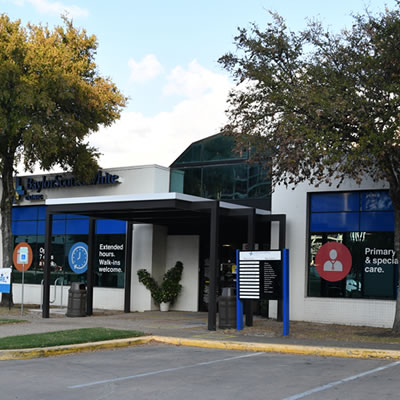
Baylor Scott & White Clinic - Austin North Burnet
2608 Brockton Dr , Austin, TX, 78758
- Monday: 8:00 am - 5:00 pm
- Tuesday: 8:00 am - 5:00 pm
- Wednesday: 8:00 am - 5:00 pm
- Thursday: 8:00 am - 5:00 pm
- Friday: 8:00 am - 5:00 pm
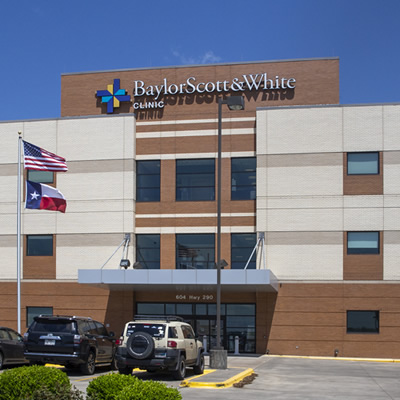
Baylor Scott & White Clinic - Brenham Hwy 290
604 US 290 , Brenham, TX, 77833
- Monday: 7:00 am - 5:00 pm
- Tuesday: 7:00 am - 5:00 pm
- Wednesday: 7:00 am - 5:00 pm
- Thursday: 7:00 am - 7:00 pm
- Friday: 7:00 am - 5:00 pm
- Saturday: 8:00 am - 12:00 pm
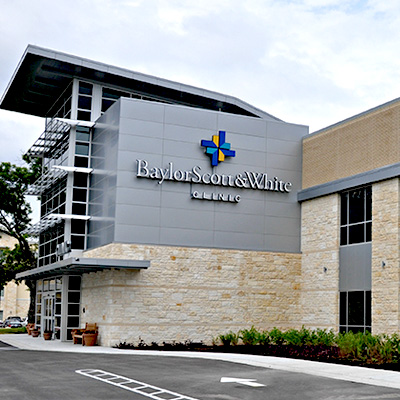
Baylor Scott & White Clinic - Cedar Park
910 E Whitestone Blvd , Cedar Park, TX, 78613
- Monday: 8:00 am - 5:00 pm
- Tuesday: 8:00 am - 5:00 pm
- Wednesday: 8:00 am - 5:00 pm
- Thursday: 8:00 am - 5:00 pm
- Friday: 8:00 am - 5:00 pm
- Monday: 7:00 am - 5:00 pm
- Tuesday: 7:00 am - 5:00 pm
- Wednesday: 7:00 am - 5:00 pm
- Thursday: 7:00 am - 5:00 pm
- Friday: 7:00 am - 5:00 pm
- Saturday: 9:00 am - 2:00 pm

Baylor Scott & White Clinic - College Station Rock Prairie
800 Scott and White Dr , College Station, TX, 77845
- Monday: 7:30 am - 5:00 pm
- Tuesday: 7:30 am - 5:00 pm
- Wednesday: 7:30 am - 5:00 pm
- Thursday: 7:30 am - 5:00 pm
- Friday: 7:30 am - 5:00 pm
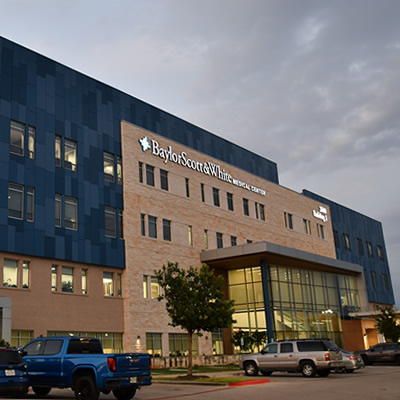
Baylor Scott & White Clinic - Pflugerville Medical Center (Building 1)
2600 E Pflugerville Pkwy Bldg 1, Ste 200, Pflugerville, TX, 78660
- Monday: 8:00 am - 5:00 pm
- Tuesday: 8:00 am - 5:00 pm
- Wednesday: 8:00 am - 5:00 pm
- Thursday: 8:00 am - 5:00 pm
- Friday: 8:00 am - 5:00 pm
- Monday: 7:30 am - 4:00 pm
- Tuesday: 7:30 am - 4:00 pm
- Wednesday: 7:30 am - 4:00 pm
- Thursday: 7:30 am - 4:00 pm
- Friday: 7:30 am - 4:00 pm
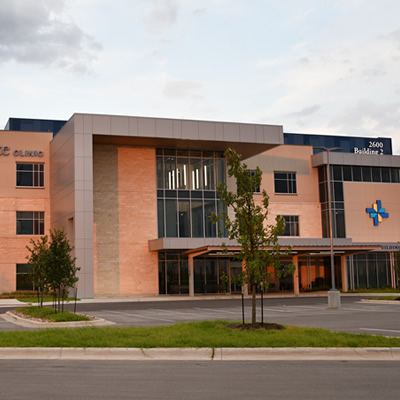
Baylor Scott & White Clinic - Pflugerville Medical Center Building 2
2600 E Pflugerville Pkwy Building 2, Pflugerville, TX, 78660
- Monday: 8:00 am - 5:00 pm
- Tuesday: 8:00 am - 5:00 pm
- Wednesday: 8:00 am - 5:00 pm
- Thursday: 8:00 am - 5:00 pm
- Friday: 8:00 am - 5:00 pm
- Monday: 8:00 am - 4:00 pm
- Tuesday: 8:00 am - 4:00 pm
- Wednesday: 8:00 am - 4:00 pm
- Thursday: 8:00 am - 4:00 pm
- Friday: 8:00 am - 4:00 pm
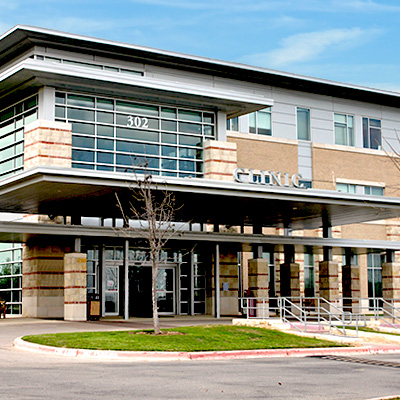
Baylor Scott & White Clinic - Round Rock 302 University
302 University Blvd , Round Rock, TX, 78665
- Monday: 8:00 am - 5:00 pm
- Tuesday: 8:00 am - 5:00 pm
- Wednesday: 8:00 am - 5:00 pm
- Thursday: 8:00 am - 5:00 pm
- Friday: 8:00 am - 5:00 pm
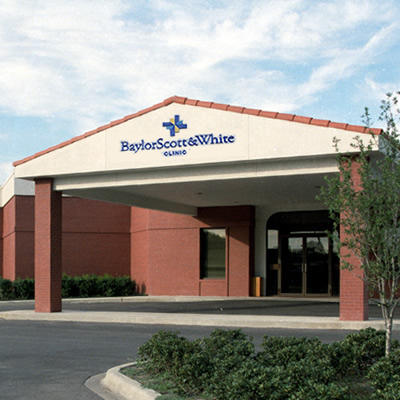
Baylor Scott & White Clinic - Santa Fe
1402 W Ave H , Temple, TX, 76504
- Monday: 8:00 am - 5:00 pm
- Tuesday: 8:00 am - 5:00 pm
- Wednesday: 8:00 am - 5:00 pm
- Thursday: 8:00 am - 5:00 pm
- Friday: 8:00 am - 5:00 pm
- Monday: 7:00 am - 4:30 pm
- Tuesday: 7:00 am - 4:30 pm
- Wednesday: 7:00 am - 4:30 pm
- Thursday: 7:00 am - 4:30 pm
- Friday: 7:00 am - 4:30 pm
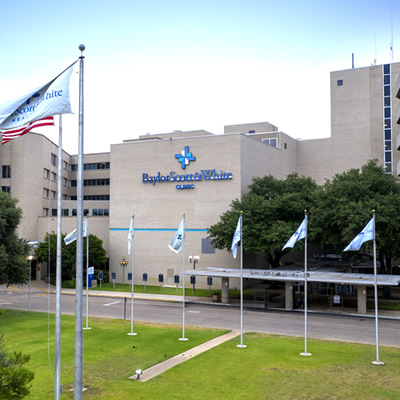
Baylor Scott & White Clinic - Temple
2401 S 31st St , Temple, TX, 76508
- Monday: 8:00 am - 5:00 pm
- Tuesday: 8:00 am - 5:00 pm
- Wednesday: 8:00 am - 5:00 pm
- Thursday: 8:00 am - 5:00 pm
- Friday: 8:00 am - 5:00 pm
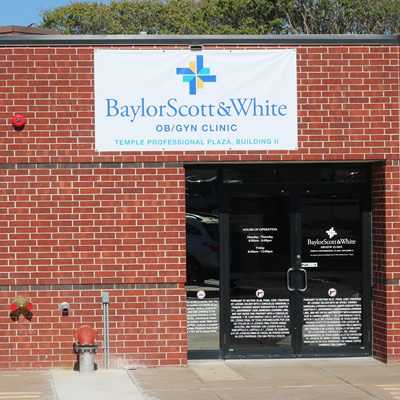
Baylor Scott & White Clinic - Temple Professional Plaza II
1713 SW H K Dodgen Loop Bldg II, Ste 100, Temple, TX, 76502
- Monday: 8:00 am - 6:00 pm
- Tuesday: 8:00 am - 6:00 pm
- Wednesday: 8:00 am - 6:00 pm
- Thursday: 8:00 am - 6:00 pm
- Friday: 8:00 am - 12:00 pm

Baylor Scott & White Medical Center - Austin
5245 W US Hwy 290 Service Rd , Austin, TX, 78735

Baylor Scott & White Medical Center - Brenham
700 Medical Pkwy , Brenham, TX, 77833
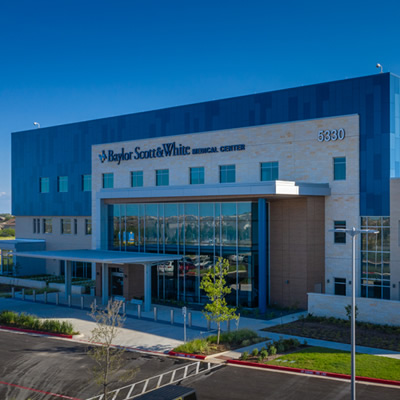
Baylor Scott & White Medical Center - Buda
5330 Overpass Rd , Buda, TX, 78610

Baylor Scott & White Medical Center - Centennial
12505 Lebanon Rd , Frisco, TX, 75035

Baylor Scott & White Medical Center - College Station
700 Scott and White Dr , College Station, TX, 77845

Baylor Scott & White Medical Center - Frisco
5601 Warren Pkwy , Frisco, TX, 75034

Baylor Scott & White Medical Center - Frisco at PGA Parkway
7600 Better Way , Frisco, TX, 75033

Baylor Scott & White Medical Center - Grapevine
1650 W College St , Grapevine, TX, 76051
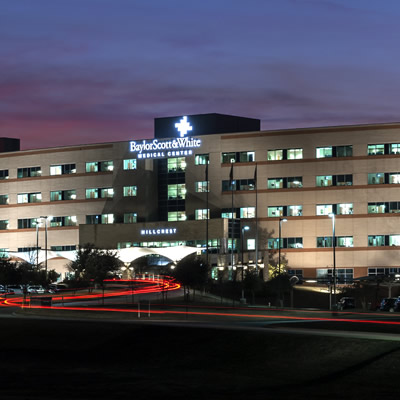
Baylor Scott & White Medical Center - Hillcrest
100 Hillcrest Medical Blvd , Waco, TX, 76712

Baylor Scott & White Medical Center - Irving
1901 N MacArthur Blvd , Irving, TX, 75061
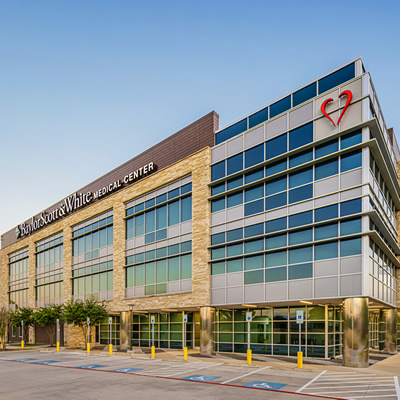
Baylor Scott & White Medical Center - Lake Pointe
6800 Scenic Dr , Rowlett, TX, 75088

Baylor Scott & White Medical Center - Lakeway
100 Medical Pkwy , Lakeway, TX, 78738

Baylor Scott & White Medical Center - Marble Falls
810 W State Hwy 71 , Marble Falls, TX, 78654

Baylor Scott & White Medical Center - McKinney
5252 W University Dr Highway 380 at Lake Forest Drive, McKinney, TX, 75071
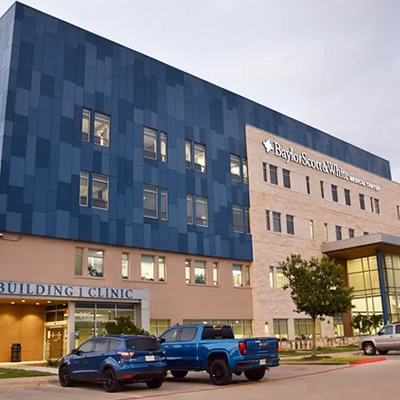
Baylor Scott & White Medical Center - Pflugerville (Building 1)
2600 E Pflugerville Pkwy Bldg 1, Ste 100, Pflugerville, TX, 78660

Baylor Scott & White Medical Center - Plano
4700 Alliance Blvd , Plano, TX, 75093

Baylor Scott & White Medical Center - Round Rock
300 University Blvd , Round Rock, TX, 78665
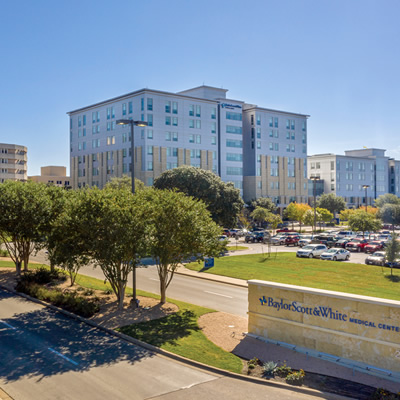
Baylor Scott & White Medical Center - Temple
2401 S 31st St , Temple, TX, 76508

Baylor Scott & White Medical Center - Waxahachie
2400 N Interstate 35E , Waxahachie, TX, 75165

Baylor Scott & White OB/GYN Clinic - Waco
120 Hillcrest Medical Blvd Office Building 2, Ste 201-2, Waco, TX, 76712
- Monday: 8:00 am - 5:00 pm
- Tuesday: 8:00 am - 5:00 pm
- Wednesday: 8:00 am - 5:00 pm
- Thursday: 8:00 am - 5:00 pm
- Friday: 8:00 am - 5:00 pm
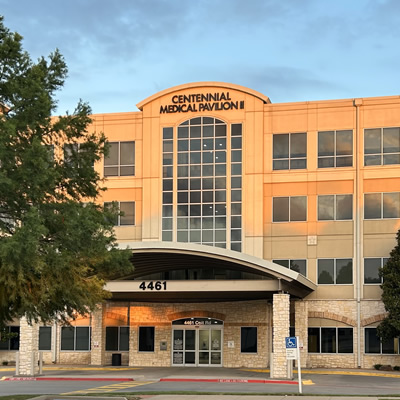
Baylor Scott & White Obstetrics & Gynecology - Frisco
4461 Coit Rd Ste 205, Frisco, TX, 75035
- Monday: 8:00 am - 4:45 pm
- Tuesday: 8:00 am - 4:45 pm
- Wednesday: 8:00 am - 4:45 pm
- Thursday: 8:00 am - 4:45 pm
- Friday: 8:00 am - 4:30 pm

Baylor Scott & White Obstetrics & Gynecology - Frisco at PGA Parkway
16050 Everwell Ln Professional Pavilion I, Ste 200, Frisco, TX, 75033
- Monday: 8:00 am - 4:45 pm
- Tuesday: 8:00 am - 4:45 pm
- Wednesday: 8:00 am - 4:45 pm
- Thursday: 8:00 am - 4:45 pm
- Friday: 8:00 am - 4:30 pm
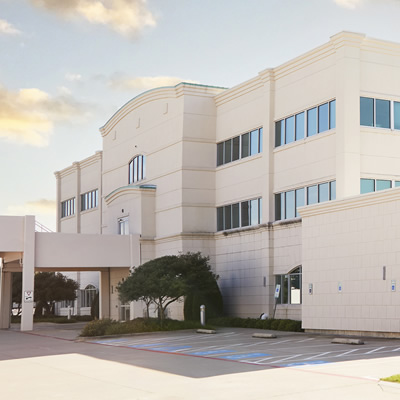
Baylor Scott & White Obstetrics & Gynecology - Grapevine
1631 Lancaster Dr Ste 370, Grapevine, TX, 76051
- Monday: 8:00 am - 5:00 pm
- Tuesday: 8:00 am - 5:00 pm
- Wednesday: 8:00 am - 5:00 pm
- Thursday: 8:00 am - 5:00 pm
- Friday: 8:00 am - 5:00 pm

Baylor Scott & White Obstetrics & Gynecology - Rockwall
1005 W Ralph Hall Pkwy Ste 115, Rockwall, TX, 75032
- Monday: 8:00 am - 5:00 pm
- Tuesday: 8:00 am - 5:00 pm
- Wednesday: 8:00 am - 5:00 pm
- Thursday: 8:00 am - 5:00 pm
- Friday: 8:00 am - 5:00 pm

Baylor Scott & White Obstetrics & Gynecology - Rowlett
9500 Lakeview Pkwy Ste 100, Rowlett, TX, 75088
- Monday: 8:00 am - 5:00 pm
- Tuesday: 8:00 am - 5:00 pm
- Wednesday: 8:00 am - 5:00 pm
- Thursday: 8:00 am - 5:00 pm
- Friday: 8:00 am - 5:00 pm

Baylor Scott & White Obstetrics & Gynecology - Waxahachie
2460 N Interstate 35E Ste 225, Waxahachie, TX, 75165
- Monday: 9:00 am - 4:30 pm
- Tuesday: 9:00 am - 4:30 pm
- Wednesday: 9:00 am - 4:30 pm
- Thursday: 9:00 am - 4:30 pm
- Friday: 9:00 am - 4:30 pm

Baylor Scott & White Park Lane OB/GYN Associates
9101 N Central Expy Ste 250, Dallas, TX, 75231
- Monday: 8:00 am - 4:30 pm
- Tuesday: 8:00 am - 4:30 pm
- Wednesday: 8:00 am - 4:30 pm
- Thursday: 8:00 am - 4:30 pm
- Friday: 8:00 am - 4:30 pm

Baylor Scott & White Specialty Clinic - Harker Heights
907 Mountain Lion Cir , Harker Heights, TX, 76548
- Monday: 8:00 am - 5:00 pm
- Tuesday: 8:00 am - 5:00 pm
- Wednesday: 8:00 am - 5:00 pm
- Thursday: 8:00 am - 5:00 pm
- Friday: 8:00 am - 5:00 pm
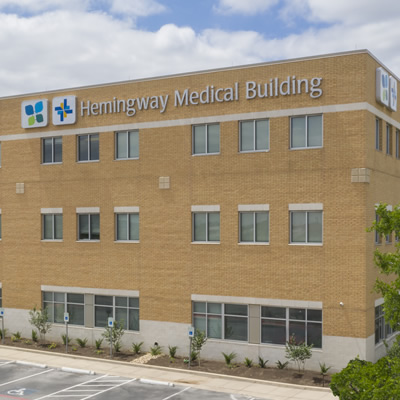
Baylor Scott & White Specialty Clinic - Killeen Hemingway
2405 S Clear Creek Rd , Killeen, TX, 76549
- Monday: 8:00 am - 5:00 pm
- Tuesday: 8:00 am - 5:00 pm
- Wednesday: 8:00 am - 5:00 pm
- Thursday: 8:00 am - 5:00 pm
- Friday: 8:00 am - 5:00 pm
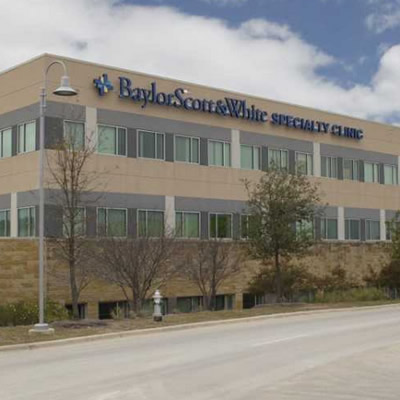
Baylor Scott & White Specialty Clinic - Lakeway
200 Medical Pkwy , Lakeway, TX, 78738
- Monday: 8:00 am - 5:00 pm
- Tuesday: 8:00 am - 5:00 pm
- Wednesday: 8:00 am - 5:00 pm
- Thursday: 8:00 am - 5:00 pm
- Friday: 8:00 am - 5:00 pm
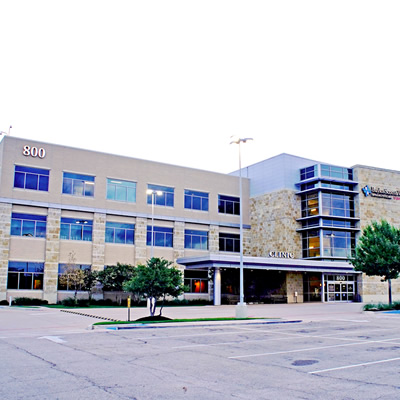
Baylor Scott & White Specialty Clinic - Marble Falls
800 W State Hwy 71 , Marble Falls, TX, 78654
- Monday: 8:00 am - 5:30 pm
- Tuesday: 8:00 am - 5:30 pm
- Wednesday: 8:00 am - 5:30 pm
- Thursday: 8:00 am - 5:30 pm
- Friday: 8:00 am - 5:30 pm

Baylor Scott & White Specialty Clinic - Salado
213 Millcreek Dr Ste 190, Salado, TX, 76571
- Monday: 8:00 am - 5:00 pm
- Tuesday: 8:00 am - 5:00 pm
- Wednesday: 8:00 am - 5:00 pm
- Thursday: 8:00 am - 5:00 pm
- Friday: 8:00 am - 5:00 pm

Baylor Scott & White Surgicare - Dallas
4020 Junius St , Dallas, TX, 75246
- Monday: 6:00 am - 5:00 pm
- Tuesday: 6:00 am - 5:00 pm
- Wednesday: 6:00 am - 5:00 pm
- Thursday: 6:00 am - 5:00 pm
- Friday: 6:00 am - 5:00 pm

Baylor Scott & White Surgicare - Garland
530 Clara Barton Blvd Ste 100, Garland, TX, 75042
- Monday: 6:00 am - 5:00 pm
- Tuesday: 6:00 am - 5:00 pm
- Wednesday: 6:00 am - 5:00 pm
- Thursday: 6:00 am - 5:00 pm
- Friday: 6:00 am - 5:00 pm
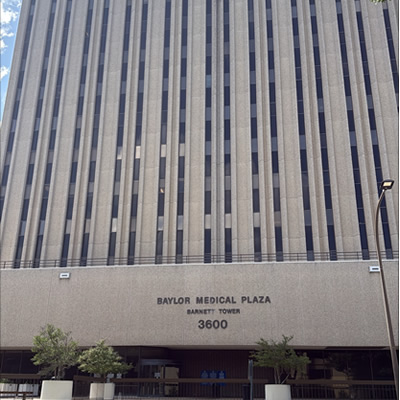
Baylor Scott & White Women's Health Group
3600 Gaston Ave Wadley Tower, Ste 1158, Dallas, TX, 75246
- Monday: 9:00 am - 5:00 pm
- Tuesday: 9:00 am - 5:00 pm
- Wednesday: 9:00 am - 5:00 pm
- Thursday: 9:00 am - 5:00 pm
- Friday: 9:00 am - 4:30 pm

Baylor Scott & White Women’s Health Specialists - Waxahachie
2460 N Interstate 35E Ste 165, Waxahachie, TX, 75165
- Monday: 8:00 am - 5:00 pm
- Tuesday: 8:00 am - 5:00 pm
- Wednesday: 8:00 am - 5:00 pm
- Thursday: 8:00 am - 5:00 pm
- Friday: 8:00 am - 5:00 pm

Baylor University Medical Center, part of Baylor Scott & White Health
3500 Gaston Ave , Dallas, TX, 75246
How we reviewed this page
-
June 26, 2025

